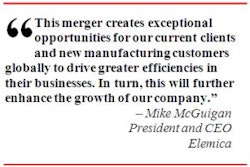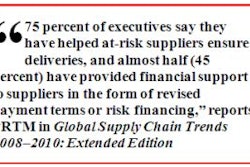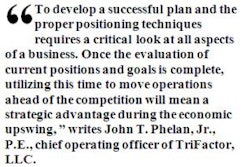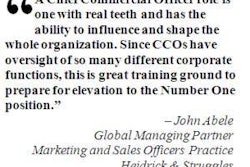
August 5, 2009 — Most organizations are in sweat denial. It's like a cosy club where the power players agree to turn a blind eye and fiddle around the edges. Middle managers protect their managers. Top leaders don't know what's going on down below.
According to a Corporate Leadership Council study, the single most important factor affecting staff engagement is the quality of a person's manager, and another study found that 80 percent of people who resign from their jobs do so because they can't stand their boss. A Gallup poll revealed recently that nearly 25 percent of all employees in the U.S. would fire their boss if given the chance.
Yet according to former IBM human resources executive Andrew O'Keeffe, most organizations avoid fixing the biggest internal restraint on their business — lifting the capability of their managers and holding the managers to account for their people responsibilities.
O'Keeffe is author of the new novel, "The Boss ," from Greenleaf Book Group Press. He believes that company leaders and human resources professionals fail in their employee/employer relationship because they don't recognize the obvious — that it's about addressing the tough stuff of bossing the bosses. Many organizations prefer to sweat the small stuff.
," from Greenleaf Book Group Press. He believes that company leaders and human resources professionals fail in their employee/employer relationship because they don't recognize the obvious — that it's about addressing the tough stuff of bossing the bosses. Many organizations prefer to sweat the small stuff.
While at IBM and as a senior human resources executive at such organizations as Optus, Sinclair Knight Merz and Hewitt Associates, O'Keeffe says that he worked closely with a range of bosses. While writing The Boss, O'Keeffe talked to a large number of people. Almost everyone, he says, had their own boss story to tell, and people always told their stories with emotion — anger, frustration, hurt, despair, amazement, joy and humor. Some of those stories provided content for his book.
"There is a light bulb that needs to be turned on to overcome a fundamental blind spot," said O'Keeffe, who today is a human resources consultant. "We don't realize, or don't acknowledge, that the relationship people have with their boss is emotional. We have attended to the issue of management as though it is rational — it's not. It's emotional. When you ask people about their boss, as I have done, you get an instant emotional reaction — good or bad. I rarely received a neutral response."
So why a novel? "The reason I wrote The Boss as a novel based on true stories," O'Keeffe explains, "is to reveal that the relationship between people and their boss is emotion, and that the relationship has a major impact on people's spirit and output."
as a novel based on true stories," O'Keeffe explains, "is to reveal that the relationship between people and their boss is emotion, and that the relationship has a major impact on people's spirit and output."
O'Keeffe believes that companies can systematically lift the quality of managers in their organizations and reduce the negative emotional response and sapping of staff energy by following five simple rules.
Every day, managers have events at work that are moments that define their relationship with their staff (such as project reviews, team meetings, performance appraisals, pay reviews). The way managers deal with these events defines their leadership authority — if managers do these events well, their leadership authority is enhanced, but if they do them poorly, their leadership authority is eroded — by their very own actions.
More information on Andrew O'Keeffe and The Boss is available at O'Keeffe's Web site, www.hardwiredhumans.com.
is available at O'Keeffe's Web site, www.hardwiredhumans.com.
According to a Corporate Leadership Council study, the single most important factor affecting staff engagement is the quality of a person's manager, and another study found that 80 percent of people who resign from their jobs do so because they can't stand their boss. A Gallup poll revealed recently that nearly 25 percent of all employees in the U.S. would fire their boss if given the chance.
Yet according to former IBM human resources executive Andrew O'Keeffe, most organizations avoid fixing the biggest internal restraint on their business — lifting the capability of their managers and holding the managers to account for their people responsibilities.
O'Keeffe is author of the new novel, "The Boss
While at IBM and as a senior human resources executive at such organizations as Optus, Sinclair Knight Merz and Hewitt Associates, O'Keeffe says that he worked closely with a range of bosses. While writing The Boss, O'Keeffe talked to a large number of people. Almost everyone, he says, had their own boss story to tell, and people always told their stories with emotion — anger, frustration, hurt, despair, amazement, joy and humor. Some of those stories provided content for his book.
"There is a light bulb that needs to be turned on to overcome a fundamental blind spot," said O'Keeffe, who today is a human resources consultant. "We don't realize, or don't acknowledge, that the relationship people have with their boss is emotional. We have attended to the issue of management as though it is rational — it's not. It's emotional. When you ask people about their boss, as I have done, you get an instant emotional reaction — good or bad. I rarely received a neutral response."
So why a novel? "The reason I wrote The Boss
O'Keeffe believes that companies can systematically lift the quality of managers in their organizations and reduce the negative emotional response and sapping of staff energy by following five simple rules.
- Design a "Doable" Job — To enable managers to do their job, their role first needs to be structured so that they have a sensible number of people reporting to them. Overseeing more than nine people gets managers into trouble. Moreover, organizations have to articulate clear expectations and define what constitutes success for the manager in the eyes of top management.
- Hire Well — Hiring is 90 percent of success, so don't let middle managers appoint lower-level managers without review. Use the hiring step to lift the caliber of your managers and ensure they have people skills.
- Give Them Tools — Provide the managers with practical no-nonsense and not overly complex leadership tools (for recruiting staff, orienting staff, planning and reviewing work, conducting developing discussions and managing pay and rewards).
- Invest in Skill Development — By definition, most managers are appointed to their roles because of their technical skills. Yet the people dimension of their role is the most complex and unpredictable and the area they are least prepared for. It is a blissful denial of reality to think that managers will be equipped to manage the people dimensions of their role by merely being appointed to their role. There is a desperate need for skilling — of frameworks, ideas, concepts, and practice. "When we run leadership programs, managers are appreciative that often for the first time in their life they are given the clues to manage the hardest part of their job," O'Keeffe says.
- Hold Managers Accountable — Senior leaders need to know the managers who are doing well at their people responsibilities, and those who are not. Moreover, they need to be help and then push the ones who lag behind. Organizations must implement a feedback loop — such as engagement surveys of staff on their managers, "skip" interviews by senior leaders, and "morale reviews" by HR. The accountability test to a senior leader is: "What would a manager need to do in your organization to be moved out of their manager role?" The answer to this question describes the culture that you have established in your organization and the quality of management in your organization.
Every day, managers have events at work that are moments that define their relationship with their staff (such as project reviews, team meetings, performance appraisals, pay reviews). The way managers deal with these events defines their leadership authority — if managers do these events well, their leadership authority is enhanced, but if they do them poorly, their leadership authority is eroded — by their very own actions.
More information on Andrew O'Keeffe and The Boss











